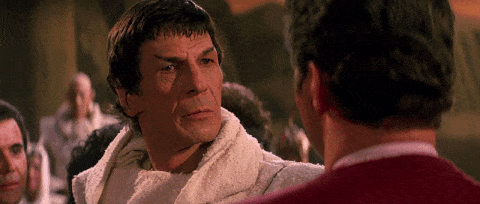By the way, here I talked about how inadequate (and even a little cowardly) I found The Outcast regarding the representation of the LBGTQI+ theme.
Frakes kind of felt the same way. He's gone on record stating he thought at the very least, the alien should have just stayed genderless, or identified as male.
I still have some sympathy though, as TNG wasn't really trying to be controversial, and that would have been controversial.
I do still hold that this episode isn't as "cowardly" as some say. For the time, it was still fairly brave, but you need to really think about it beyond just the surface details. It's still an LGBT story, and Riker is still accepting of that... the aliens, from what we can surmise from the episode, are biologically sexless. They quite literally don't have male or females anymore. We don't get any suggestion that some have different "parts", they're just... sexless/genderless.
Given that, yeah she ends up identifying as female, but at the end of the day she's not a biological female, and Riker is ok with that. That fact shouldn't be ignored. Riker, without even a hesitation, was perfectly ok with being in a relationship with what is tantamount to a trans woman.
Especially for the time it was produced, The Outcast was a fairly brave representation. It might not appear quite as much as today, but it was a vastly different time and cultural climate. But this was 1992... a man being perfectly ok with having a relationship with a trans woman, on TV(!) was almost unheard of.
("The Outcast" gets alot of talk... i've always been more concerned about TNG "First Contact", when Riker gets raped... nobody ever really talks about that...my personal biggest "What the actual fuck" moment in all of Star Trek.)


 Oh my god, are you now going to do this whole “woke” rant in every other thread? Why are you so obsessed with this? It’s honestly kinda laughable that you want to turn treating people – and especially minorities – with a modicum of respect into “harassment” and “oppression”. And where the fuck do you see ”Communism“? I’m not even sure why I’m bothering to ask, since all I’m going to get is probably another word salad.
Oh my god, are you now going to do this whole “woke” rant in every other thread? Why are you so obsessed with this? It’s honestly kinda laughable that you want to turn treating people – and especially minorities – with a modicum of respect into “harassment” and “oppression”. And where the fuck do you see ”Communism“? I’m not even sure why I’m bothering to ask, since all I’m going to get is probably another word salad.